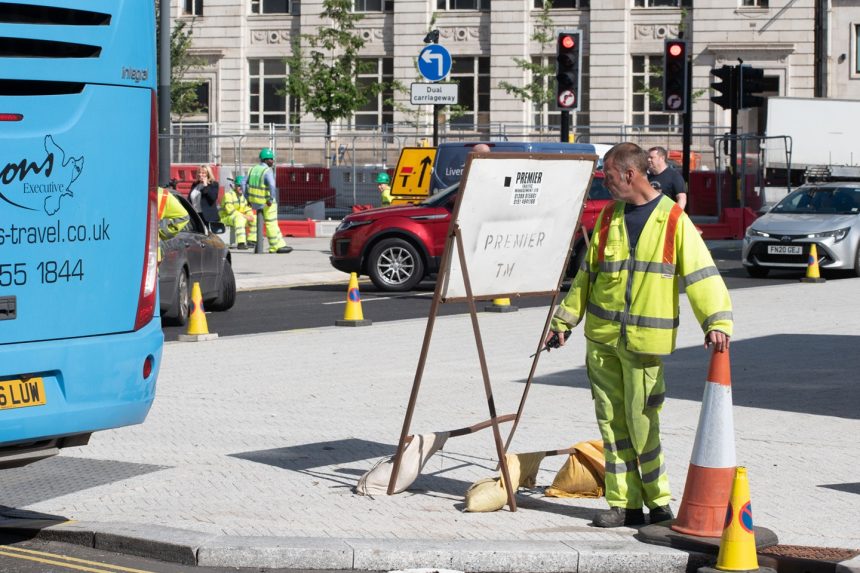Poorly planned and badly coordinated roadworks that impact coach and bus services must be tackled robustly, the Confederation of Passenger Transport (CPT) has said.
It claims that utility companies are providing “inadequate and inaccurate notice to dig up streets” and that emergency closures for that purpose are in fact becoming the norm for those organisations.
Such mismanagement is creating difficulties with punctuality, complaints from passengers, lost mileage, extended diversions, administrative costs and financial penalties for affected operators, the trade body continues.
CPT has now made a submission to the Transport Committee in which priority passage for buses through work zones is called for, via escort vehicles where feasible. That is particularly required for low-frequency rural services, the Confederation believes.
It also wants enhanced communication of works, stronger enforcement of overruns, and utility companies to fund alternatives – such as temporary shuttle services – where a section of bus route cannot be served.
CPT says that while utility companies should give notice and obtain a permit to carry our roadworks, “an increasing proportion of activity is being carried out at zero notice under ‘emergency’ provisions.”
Part of the problem are “overly broad permits” that have unnecessarily long contingency periods allocating several days to tasks that requires only a few hours. “There is often no communication when works are completed early, leaving temporary [traffic] lights and lane closures in place,” CPT continues.
Operations Director Keith McNally acknowledges that works are necessary, but that the coordination and planning of them “is simply inadequate.”
Mr McNally adds: “Too often, utility companies plan works in a central corporate location with little or no local knowledge. Bus companies are given little or no notice of disruption, and when timings are communicated in advance, they often do not match reality.
“It is time to give more consideration to Britain’s most popular form of public transport. Bus users deserve to be treated with respect through consultation, early notification, and clear updates of works. Utilities that fall short should face meaningful enforcement action.”
The Confederation says that in the West Midlands, 40% of work carried out by Cadent is done at zero notice along with 25% by Severn Trent Water. Delays and cancellations caused by roadworks have contributed to a 13.5% real term increase in costs for bus operators per mile since 2019, CPT adds.
It has also highlighted that during 2024, a 350-metre stretch of road in Plymouth had 25 separate sets of street works in 2024. In Reading, seven of the eight principal routes into the town were disrupted by works simultaneously. That involved eight sets of temporary traffic lights, 10 bus stop closures, and two road closures.
In Sheffield, a poorly timed project undertaken by Northern Powergrid in November 2024 was described as a minor carriageway incursion on its permit but established a set of three-way temporary traffic lights at a key junction. It caused 500 bus miles to be lost after no notice was given.






























